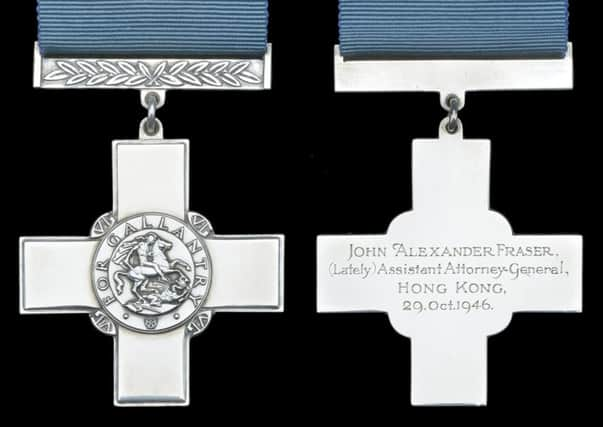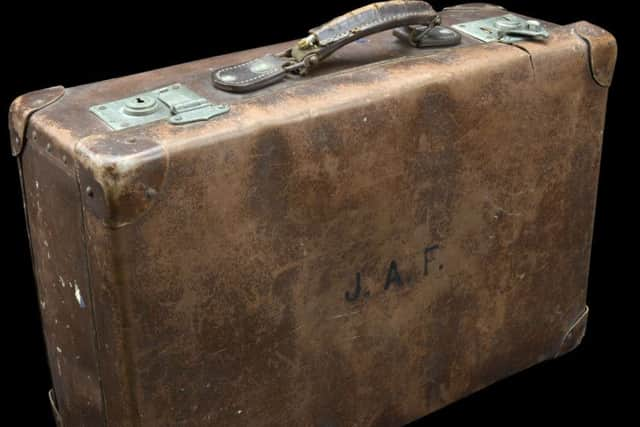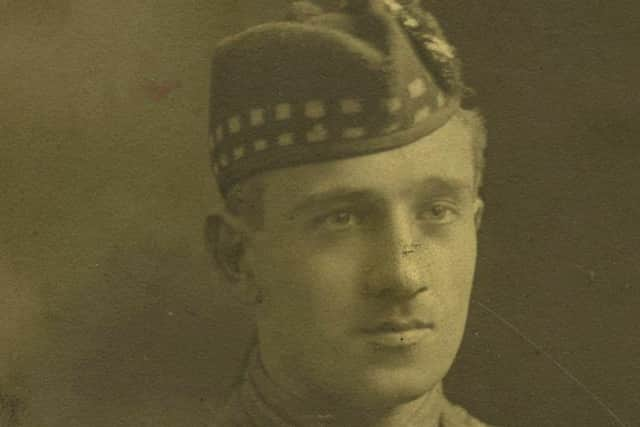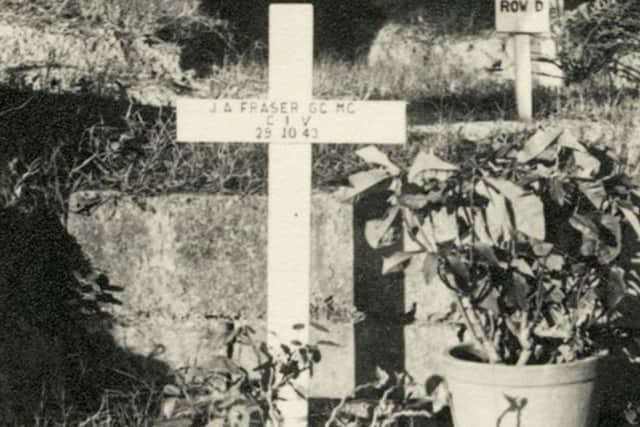Medal awarded to Scots soldier beheaded by Japanese fetches £228k
This article contains affiliate links. We may earn a small commission on items purchased through this article, but that does not affect our editorial judgement.


The decoration -- the highest gallantry award for civilians -- was presented to the widow of John Fraser by George VI at Buckingham Palace in 1946.
Mr Fraser, born in Edinburgh in 1896, was executed in Hong Kong in 1843 after he refused to betray fellow prisoners despite prolonged torture.
Advertisement
Hide AdAdvertisement
Hide AdThe medal -- described as one of the most important and poignant gallantry awards of the Second World War -- was put up for auction by his grandchildren, along with his leather suitcase containing a copy of the last letter he wrote to his wife, Kathleen, addressed to “my dearest darling”.


Auctioneer Oliver Pepys of Dix Noonan Webb described the medal as “the highly emotive George Cross”, and started the bidding at £100,000.
It was bought by a bidder in the London auction room for £228,000 -- exceeding its pre-sale estimate of £120,000-150,000.
Will Bennett, spokesman for Dix Noonan Webb, said: “This was a tremendously high price for a George Cross, which reflected the extraordinary gallantry by a truly remarkable Scotsman.”


Fraser was a Civilian Defence Secretary in Hong Kong and a member of the Executive Council in the British colony.
Following the fall of Hong Kong to the Japanese, he was incarcerated in the Civil Internment Camp at Stanley.
He organised escape plans and a clandestine wireless service, and succeeded in receiving news from outside and getting important information out.
Advertisement
Hide AdAdvertisement
Hide Ad

He was eventually arrested and subjected to prolonged and severe torture by his captors, who demanded to know who had been involved in the clandestine activities.
His medal citation states: “Under this treatment he steadfastly refused to utter one word that could help the Japanese investigations or bring punishments to others.
“His fortitude under the most severe torture was such that it was commented on by the Japanese prison guards.”
George Wright-Nooth, a Hong Kong police officer who smuggled food and messages in and out of the camp, later wrote in his memoires how Fraser’s “incredible courage” saved him from certain execution.


He recalled: “He was a small, somewhat mild-looking civil servant of 47 called John Fraser. He went to his death crippled by torture and beatings, his body emaciated and bent, virtually unrecognisable as the man he had once been. His was the triumph of the spirit over physical torment.”
Fraser and 32 other prisoners -- including one woman -- were sentenced to death after a show trial at which they were neither represented nor allowed to speak in their own defence.
Fraser’s wife Kathleen had been evacuated from Hong Kong with their sons Tom and Ian before the Japanese attack.
Advertisement
Hide AdAdvertisement
Hide AdOn the day of his execution, 29 October 1943, Fraser wrote to her: “My dearest darling. This is my last letter... Give the boys a good education and make them learn a trade or profession.
“Remember the only thing I cared about was you and the boys. Everything else gave way to that. My dearest love to you and Tom and Ian. From your husband, John.”
The letter was discovered, with the rest of his effects, in the battered suitcase that was returned to Kathleen after the war.


John Alexander Fraser was born in Edinburgh on 12 February 1896, the son of Thomas Fraser, a mercantile clerk, and his wife Mary.
Educated at the Trinity Academy and Edinburgh University, he was commissioned into the Royal Scots Fusiliers after the outbreak of the First World War.
He transferred to the Machine Gun Corps in 1916 and won the Military Cross and Bar serving with that Corps in France and proving his gallantry long before the events that brought him a posthumous George Cross.
The George Cross was presented to Kathleen Fraser by George VI at Buckingham Palace on 27 November 1946.
DOWNLOAD THE SCOTSMAN APP ON ITUNES OR GOOGLE PLAY
